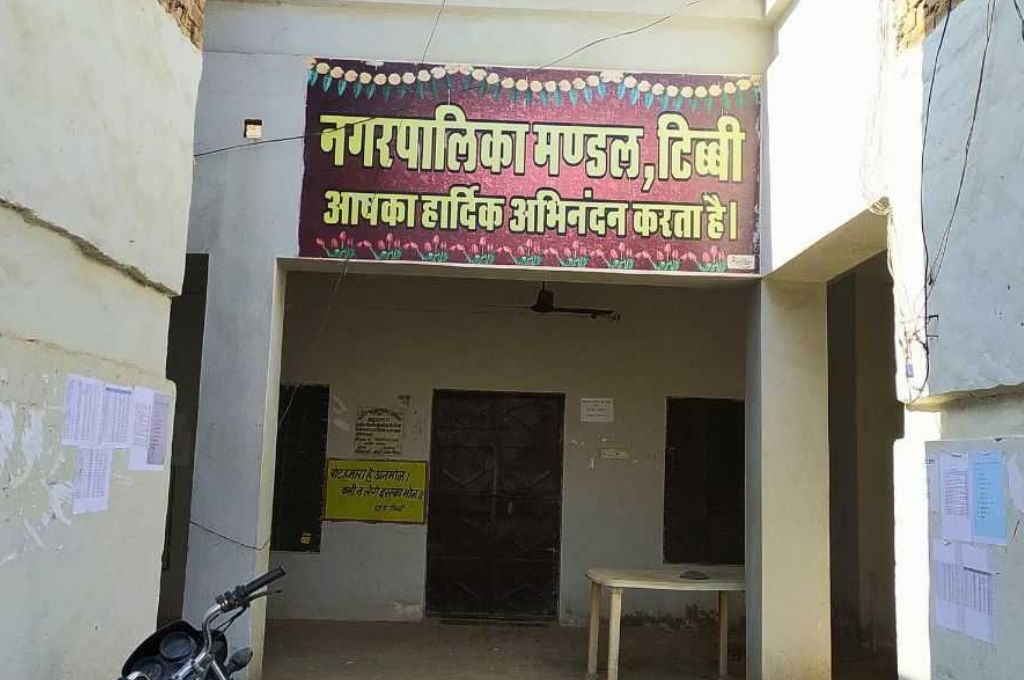Is it a village? Is it a city? It’s Tibbi municipality in Rajasthan

Enduring foul smells and navigating sewage from overflowing drains is nothing new for the people of Tibbi in Rajasthan’s Hanumangarh district. The problem existed in 2022 when Tibbi was a village panchayat, and it remains the same two years since it became a municipality.
Prabhulal, a resident of ward 12, says dirty water is directed into the ponds without proper treatment, due to which the water bodies stink. “There is a need to make concrete arrangements for drainage here,” he says. “No development is visible,” adds Balwant Ram, another ward 12 resident.
Groundwater with high fluoride content is supplied as drinking water in Tibbi. People have been asking the Public Health Engineering Department to provide them with canal water, but their demand is largely unheeded.
Tibbi is at a crossroads, being neither a village nor a city following the municipal upgrade. Even today, most of the posts created in the municipality office remain vacant, which affects institutional operations.
“The municipality could have functioned smoothly if the [state] government had appointed officers and employees to the sanctioned posts. When officers and employees are not present, who will do the work?” asks Santosh Suthar, chairperson at the Tibbi municipality. She was the sarpanch for Tibbi when the state government issued a notification to upgrade it to a municipality on May 20, 2022.
When a municipal office was established in the panchayat office, the sarpanch became the municipal chairperson, the deputy sarpanch became the municipal vice chairperson, and the 23 panchayat members became councillors.
Various other official posts were created, but rarely filled. In the absence of an assistant revenue inspector, generating revenue for the municipality has been an issue. Similarly, keeping proper accounts has been difficult in the absence of a junior accountant, while sanitation has been affected due to the vacant health inspector post. The municipality does not have a permanent sanitation worker; all the cleaning work is outsourced.
The Local Self Government Department of Rajasthan recently issued a notification for recruitment to 24,797 posts of sanitation workers, but bureaucratic delays in processing means this won’t cover new municipalities such as Tibbi.
“It is necessary to have proper arrangements in the municipal office for the employees and for the use of essential resources, but no such system has been developed in Tibbi. To garner applause, the state government created various municipalities, but has not looked back at them since then,” says Ramamurthy Khanna, a councillor at the Tibbi municipality.
Due to the administrative standstill, residents feel that Tibbi was better off as a village panchayat than it is as a municipality.
Amarpal Singh Verma is a Rajasthan-based independent journalist. This is an edited excerpt from an article that was originally published on 101 Reporters.
—
Know more: Read this article to learn about the aftermath of demolitions in a West Delhi neighbourhood.



